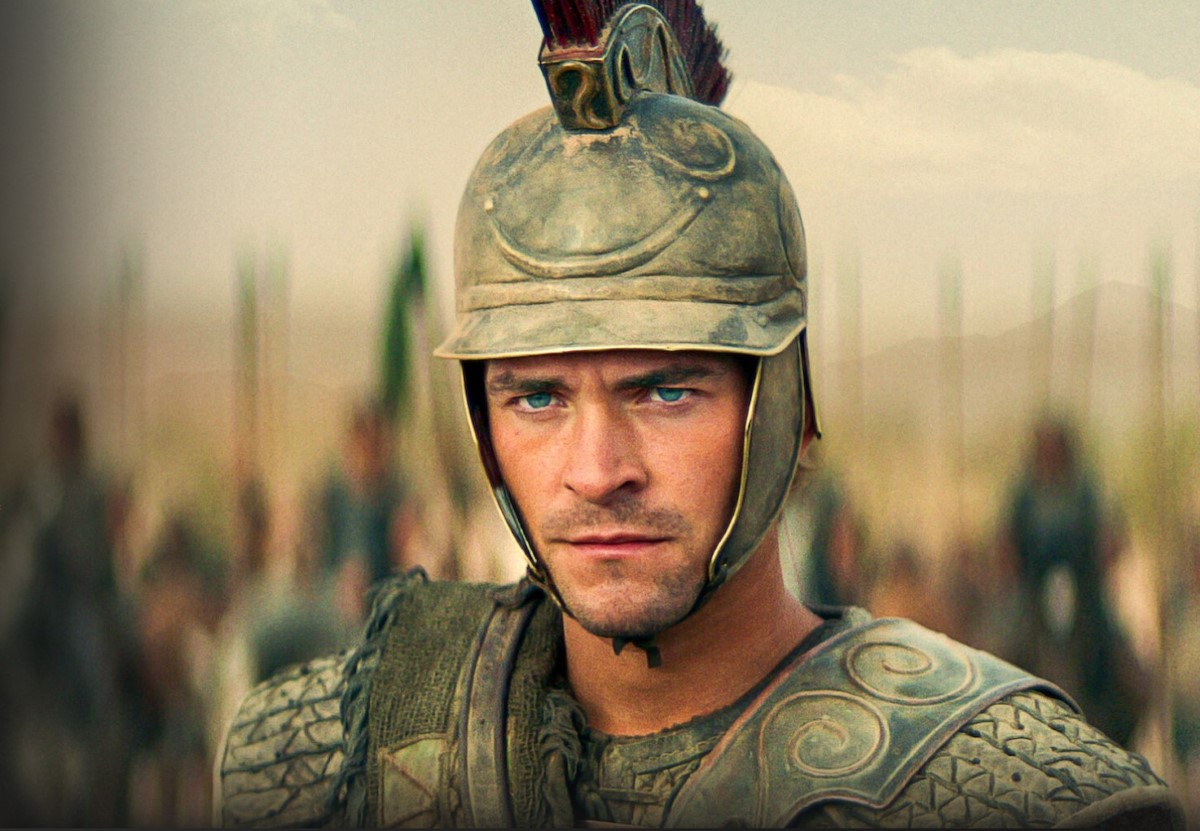He was “the Great” general who conquered Asia Minor. Indeed, he, having been a student of Aristotle, crafted the West. Yet, today, television reduces him to a homosexual symbol. This is all that matters to those spreading a pernicious woke culture.
The West begins and ends with Alexander the Great. It was he who first drew the line between East and West, battled the Persians, and saw himself as Achilles’ heir besieging Troy with the other Achaeans, a symbol of Asia Minor. He was the first emperor, the precursor to the Roman Caesars, reaching as far as India, unifying the West from Greece to Rome, which submitted to and learned the imperial calling from him. Alexander, with his red, curly hair reminiscent of an ancient Sinner, symbolically marked the founding act of the West—the decision to cut the Gordian knot, unsolvable for centuries. The West’s supremacy lay in that cut—preferring decisive action over the patience of untangling, breaking an age-old oracular prophecy tied to that mythical knot. Millennia later, Carl Schmitt wrote about this. It was Alexander who established hegemony, dubbed—like his father—Hegemon of the Hellenic League.
But in contemporary Western culture, which has shifted from Callisthenes and Plutarch to Netflix and gay pride, Alexander the Great is now the gay emperor with an affair with his general Hephaestion; for the collective imagination of Western storytelling, their homosexual kiss remains. Here, the West ends, in political correctness, to be followed by tales of Alexander the Inclusive, the Welcoming to migrants, tearing down borders to dream of a world of equals, without frontiers, not just in terms of sexuality. Yet, Alexander was great for many other, exceptional deeds, unprecedented in the ancient world. He won battles and conquered distant lands relative to his era, unified peoples under his scepter, and founded the first Western empire.
Alexander the Macedonian was great because he was tutored by the greatest philosopher of his time and beyond, the teacher of those who know, the great Aristotle, his first spin doctor and influencer. Even as a child, Alexander was so determined and capable that he tamed the legendary horse Bucephalus, accompanying him in all his battles throughout his short life, and even after, at his funeral.
Alexander was the first man of power to flatter an intellectual, offering anything to win his favor and acknowledgment. But he was unlucky to encounter Diogenes the Cynic, who lived like a dog and a bum on the streets; when the emperor approached and asked what he could do for him, the beggar’s response was magnificent: Move out of the sun. That is, the intellectual asked not for honors or riches but for the Emperor to let him enjoy the sunlight, not to cast a shadow over him.
The philosopher’s request was not to stand between him and the light, the warmth of the rays, the brilliance of viewing the world illuminated by the true lord of the universe. It was the greatest lesson in freedom and humility from a philosopher, the foundation of free thought. And Alexander, truly great, was not irritated by the insolent response, as was his impetuous nature, and by the rejection that the least man, poorer and more powerless than a hyena, had posed to the first, greatest, and most powerful man in the world. But he commented that if he were not Alexander, he would have liked to be Diogenes. A lesson that holds true even today, as Western power is on the decline.
But today, Alexander is narrated, turned into fiction, because he is considered the precursor of gay love, the political-military archetype of the homosexual; not just ancient philosophers, but also great commanders, emperors are now recognized only if they have something that is woke, or gay, fitting our modern times.
And it hardly matters to add that Alexander also had great heterosexual loves, fathered children, and had three marriages, despite dying young, at the age of Christ. What matters is to emphasize his love story with Hephaestion, as it is said of Achilles with Patroclus: what matters is to reduce him to our present, to our obsessions, to our small but tenacious prejudices. Netflix, as it already did with Cleopatra, invents an Alexander as a champion and precursor of LGBTQ+. And churns out an Alexander: the Making of a God aligned with the most vulgar woke conformisms of our days. The Minister of Culture of the conservative Greek government, Lisa Mendoni, in addition to highlighting the numerous historical inaccuracies and the poor quality of the fiction, grasps the “Gordian” knot of the issue: we cannot interpret the practices and people of 24 centuries ago using our current standards. This is indeed, beyond the LGBTQ+ fetishism, the problem: the reduction of all history, through its millennia, its greatness, and tragedies, to the narrow gauge of our days; what is called presentism or, more aptly, the egocentrism of the present. It’s a pity that the same conservative Greek government has succumbed to the woke breeze by introducing same-sex marriages. Beyond possible objections, there’s a preliminary argument: if people have decided to vote for a conservative rather than a progressive government, it’s because they want to see certain values, distinctions, and priorities protected and defended, such as the natural and traditional family. Otherwise, they would directly vote for the progressives. But in cinema, theater, and television, it’s all a woke orgy: the past is only spoken of if it alludes to today, in a correct manner. The West ends in a day…
Panorama, February 28, 2024





